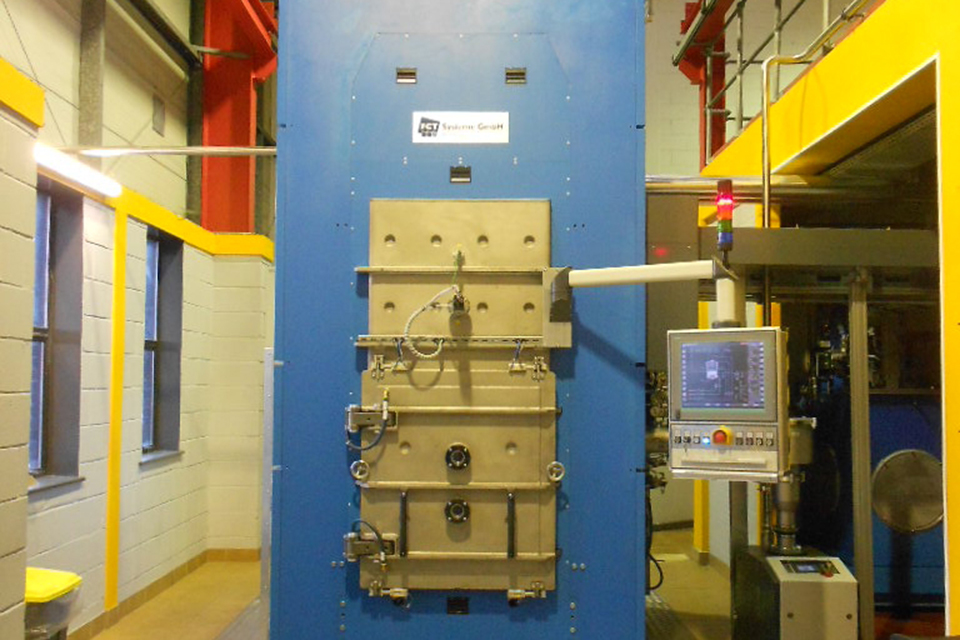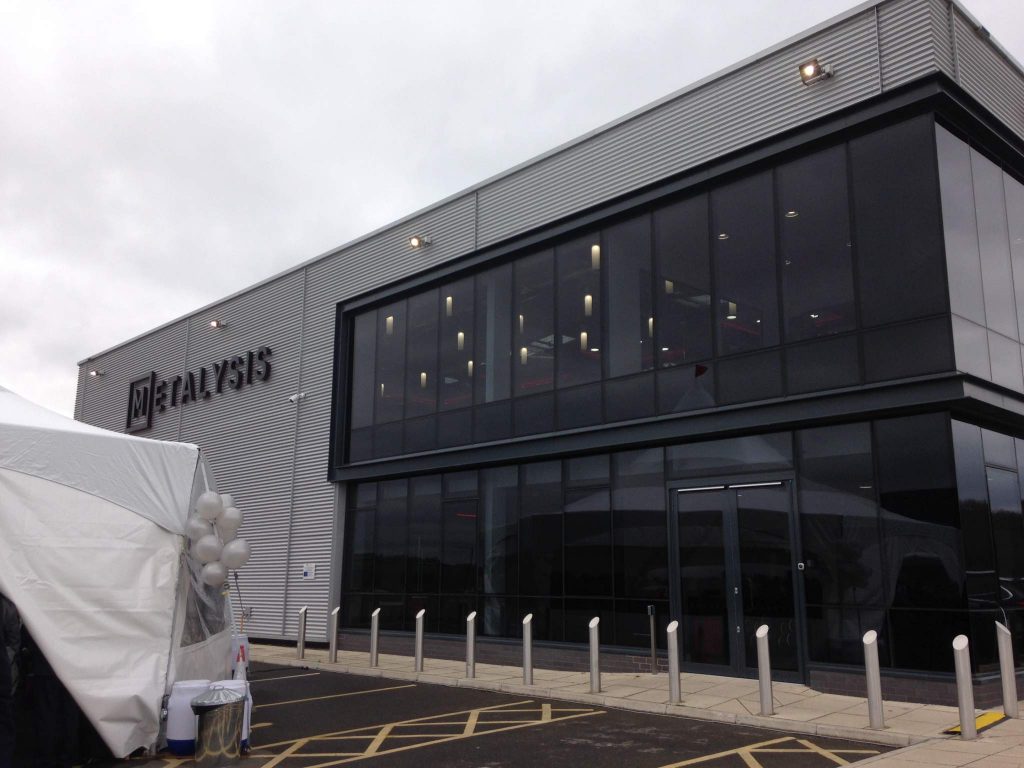Metal 3D printing received a boost this week with two announcements from the UK.
Titanium’s high strength, lightweight and resistance to corrosion make the metal a desirable choice for applications in aerospace, defence and healthcare. However, the cost of titanium makes it prohibitively expensive for wider use.
The FAST-forge initiative, funded by Innovate UK, aims to develop a process to make titanium cheaper and abundant. In turn this will allow the development of lower cost 3D printing materials.

A “ground-breaking method”
Earlier this week the UK’s Defence Secretary Gavin Williamson gave further details about the project, “Our Armed Forces use titanium in everything from cutting-edge nuclear submarines and fighter jets through to life-changing replacement limbs – but production time and costs mean we haven’t always used it.”
Describing the FAST-forge process as a “ground-breaking method” Williamson added,
[FAST-forge] is not only faster and cheaper but could see a huge expansion of titanium parts and equipment throughout the military. It is a clear example of how our world-class scientists are working behind the scenes to help our Armed Forces as well as bringing prosperity and security to Britain.
Dr Nick Weston from the Department of Materials Science & Engineering at the University of Sheffield is one of the leaders in developing the technology said, “FAST-forge is a disruptive technology that enables near net shape components to be produced from powder or particulate in two simple processing steps.”
Such components have mechanical properties equivalent to forged product. For titanium alloys, FAST-forge will provide a step change in the cost of components, allowing use in automotive applications in automotive applications such as powertrain and suspension systems.
The research is also funded with £30,000 from the Defence Science and Technology Laboratory (Dstl) in Porton Down, UK. Matthew Lunt the Principal Scientist for Materials Science at Dstl said, “We’re really excited about this innovation, which could cut the production cost of titanium parts by up to 50%. With this reduction in cost, we could use titanium in submarines, where corrosion resistance would extend the life, or for light-weight requirements like armoured vehicles.”

Metalysis receives $17 million to advance 3D printable metal alloy powders
Metalysis, headquartered in Rotherham, South Yorkshire, is also involved in the FAST-forge project. As previously reported, Metalysis is developing the Fray, Farthing, Chen (FFC) Cambridge process, a method that allows the production of metal alloys from lower priced inputs.

Specifically, the FFC process used by Metalysis takes a solid feedstock and can produce a solid product without melting the feedstock. The company believes that the FFC method has application for between 30-40 elements in the periodic table, plus the resulting alloys that can be derived from them.
The FFC method will allow the production of spherical metal powder for metal 3D printing using inputs that cost $2.50/kg rather than the current $70.
This week Metalysis announced further funding of £12m ($17m) to move forward to commercial production under the Generation 4 (“Gen4”) scale expansion project. The funding comes from existing shareholders Woodford Investment Management, Draper Esprit PLC, ETF Partners and Interogo Treasury. Hercules Capital, Inc. (NYSE: HTGC), of California, U.S. are a new investor in Metalysis.
A Metalysis spokesperson gave 3D Printing Industry more details of when commercial production is expected to commence, “We are carrying out ‘first runs’ over the coming weeks, targeting commercial production within the next couple of reporting quarters.”
Much of the the project remains underwraps and details of additive manufacturing partners using metal powders made using the solid-state process remain “commercially sensitive” with limited details available. However, the Metalysis spokesperson explained the project is progressing very well. “Having built Generation 4, there are no real challenges left associated with the technology – we have achieved industrial scale.”
In terms of future expansion, challenges will involve assembling the ideal structure of large project funding, for which we have lots of options, and the normal execution risk associated with such projects of that magnitude. Obviously, we are confident in the progress we continue to make in those respects.
Speaking about the news, Dion Vaughan, CEO of Metalysis, said, “Naturally, we are pleased that Metalysis has attracted financial backing from both new and existing sophisticated institutional investors.”
The expansion project carried out during the past year, combined with these proceeds, will support our multi-metal production and commercial rollout. Metalysis is a high growth U.K. technology business with advanced materials breakthroughs and solid-state production of great value to its customers, shareholders, partners, and employees.
Keep up to date with the latest developments in 3D printing. Subscribe to the 3D Printing Industry newsletter, follow us on Twitter and like us on Facebook.
Vote for your the 3D printing medical, dental or healthcare application of the year in the 2018 3D Printing Industry Awards.
Our 3D Printing Jobs service is now live. Post a job or advance your career in 3D printing now.
Protolabs is sponsoring the 2018 3D Printing Industry Awards design competition. Enter now for the chance to win a 3D printer.
Featured image shows an example 3D printed titanium lattices. Photo via: Metalysis/TWI



